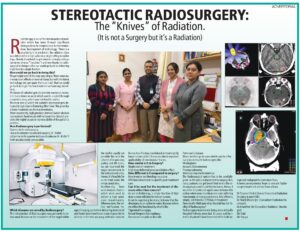Breast Cancer incidence can be reduced by 8 Specific Lifestyle-Related Changes
Exercise
Exercise helps to promote and maintain an individual’s overall physical and mental health. It is recommended that adults get 150 to 300 minutes of moderate-intensity or 75 to 150 minutes of vigorous-intensity activity each week (divided into 3 to 5 sittings).Although unclear about how and how much physical activity decreases breast cancer risk, there is growing evidence that it does reduce the risk of breast cancer occurrence by 20-40%. Even a little exercise is better than no exercise; however, reaching the upper limit is desirable.
Weight and diet
The association between an individual’s weight and breast cancer risk is a complex one. It is recommended to maintain a healthy weight and eat fresh, nutritious food, throughout your life. Obesity increases the risk for a variety of cancers including breast, colon, endometrium, oesophagus, pancreas and kidney. Being overweight can also increase the risk of cancer coming back(recurrence).
Alcohol and tobacco
Alcohol metabolism and consumption of alcohol is clearly linked to an increased risk of breast cancer. It is best to completely avoid alcohol or at least reduce its consumption to one drink a day. The possibility of breast cancer increases with the amount of alcohol consumed. There is a 7-10% increased consumption of 1 alcoholic drink a day, which increases to 20% with an intake of 2 to 3 drinks a day. Consumption of alcohol is linked to an increased risk of other types of cancer, too.Regular heavy smoking may increase the possibility of getting breast cancer.
Children
Pregnancy at an early age before 30 with delivery on the due date is considered as a protective measure against breast cancer. Women who have not had children or who had their first child after age 30 have a slightly higher breast cancer risk overall. Having many pregnancies and becoming pregnant at an early age reduces breast cancer risk.
Breastfeeding
Most studies suggest that a cumulative period of more than 2 years, may slightly lower breast cancer risk. Each year of breast feeding reduces the risk of cancer by 4.3%.
Use of birth control
The use of OCP after the age of 30 and for less than 5 years might not increase the risk of breast cancer. Current use may increase the risk for breast cancer which reduces back to normal within 10 years after stopping use. Some birth control methods use hormones, which might increase breast cancer risk.
Hormone replacement therapy(HRT) after menopause
The use of hormone replacement therapy to relieve the symptoms of menopause has been implicated in breast cancer. The longer the use, the higher the risk. The risk is more for combined HRT (estrogen + progesterone ) than estrogen-only HRT. The risk is more during current and recent use and reverts to average risk after 2 years of stopping HRT.
HRT also increases the risk for the uterine and ovarian cancers.
Chemicals in the environment
Exposure to certain chemicals may increase the risk of breast cancer. Women are exposed to various types of chemicals in everyday life. Personal care items, furniture, food packaging plastics, building materials, air pollutants, cosmetics may contain chemicals which mimic and disrupt the natural endocrine, increasing the risk of breast cancer.
